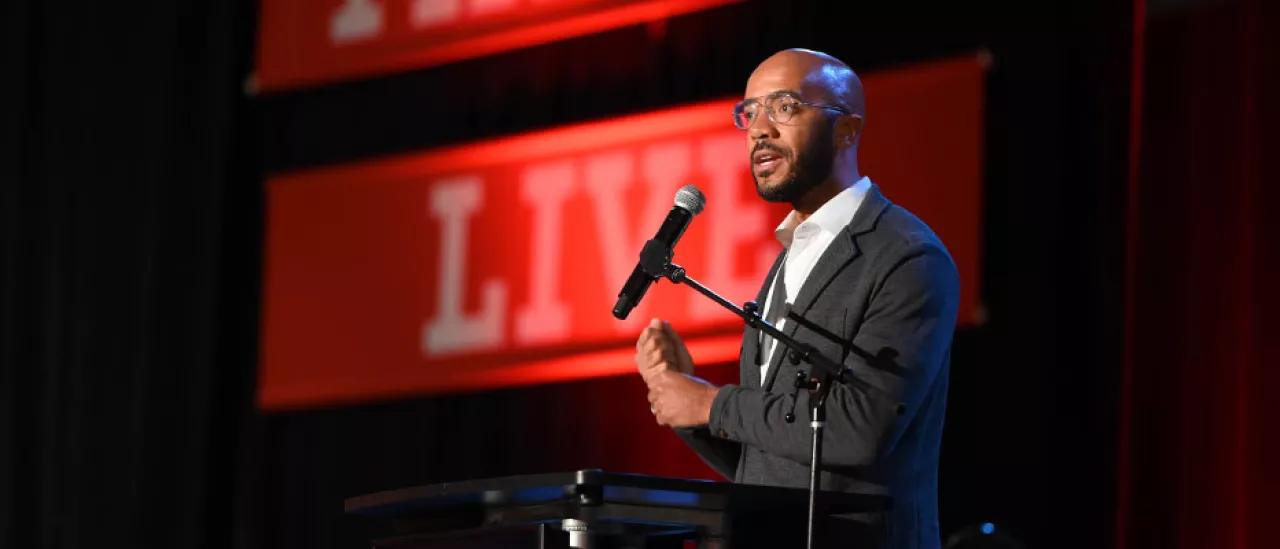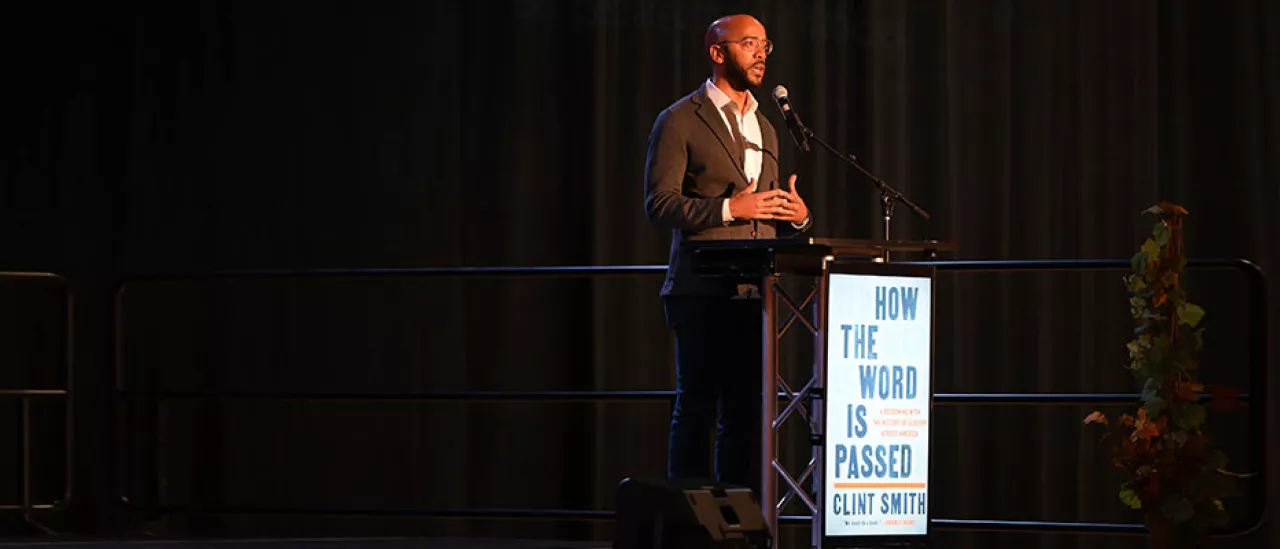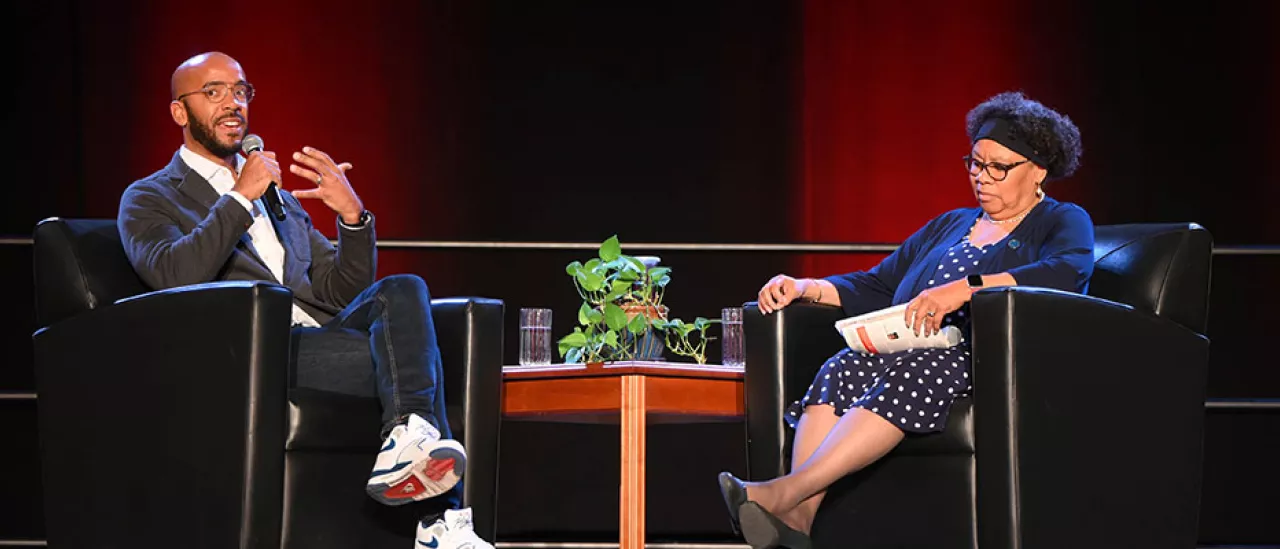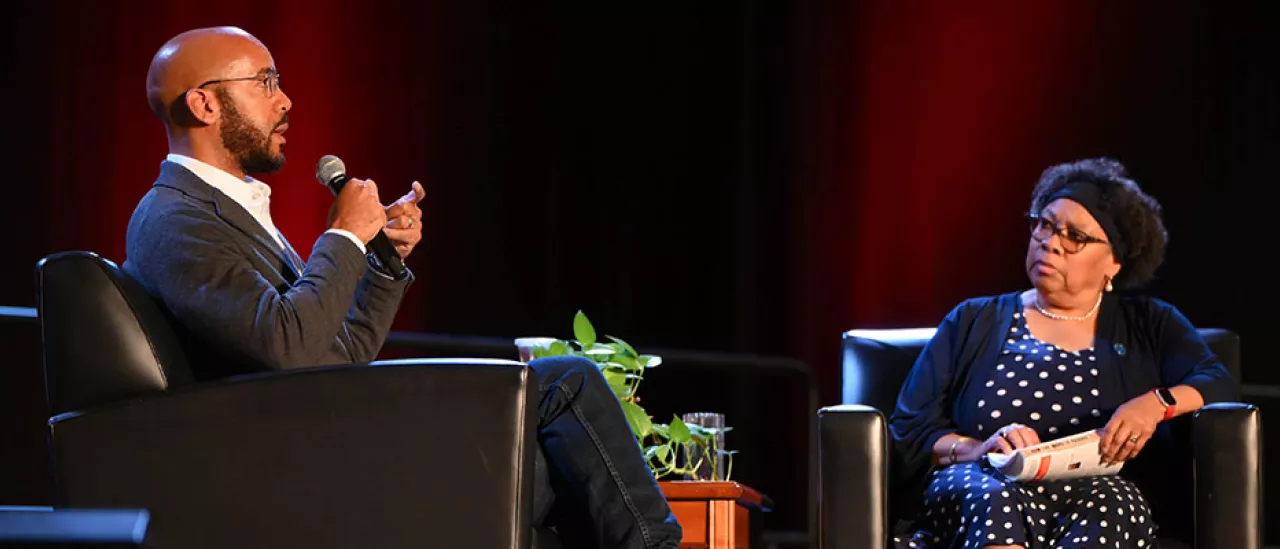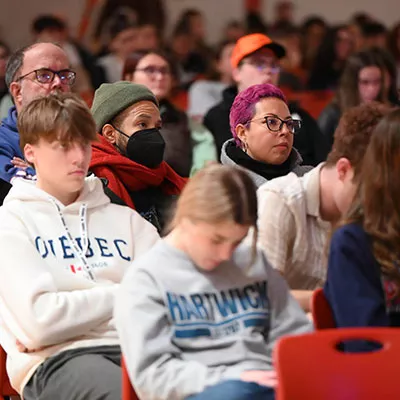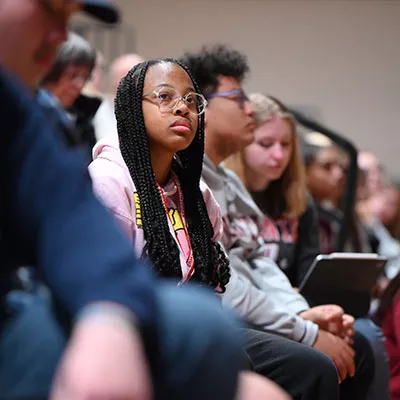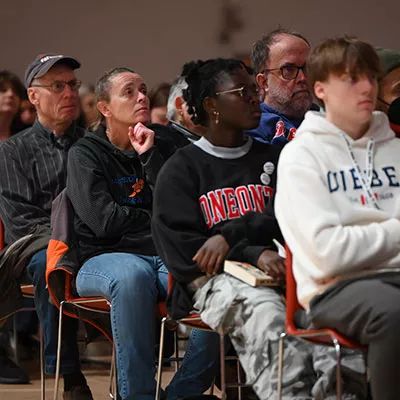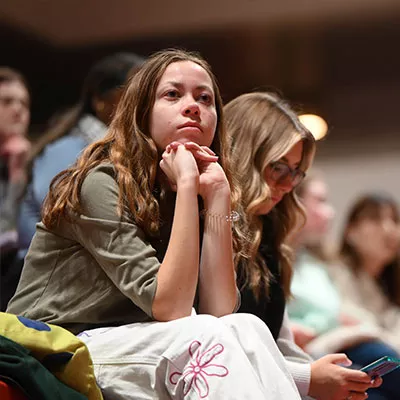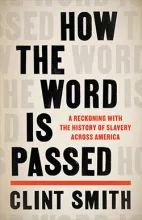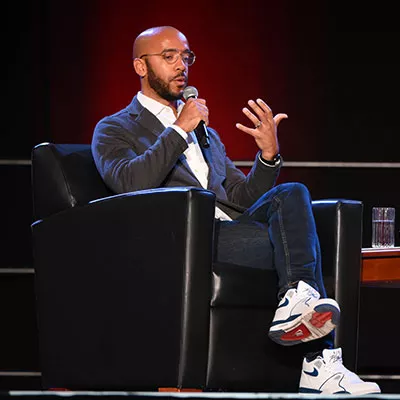Writer, poet and scholar Clint Smith III visited SUNY Oneonta on Monday, Oct. 23, to deliver the 2023 Mills Distinguished Lecture and discuss the contents of his New York Times best-selling book, “How the Word is Passed,” with students, employees and community members.
More than 1,000 people gathered at the Alumni Field House on Monday night to hear Smith speak about the project that led him to write “How the Word is Passed: A Reckoning with the History of Slavery Across America.” The award-winning book is a nonfiction examination of the ways in which monuments and landmarks offer an intergenerational story of how slavery has shaped our nation’s history and ourselves.
Standing at the lectern, Smith described what it was like to be a Black child growing up in New Orleans, surrounded by streets, parks, schools and statues named after Confederate soldiers and leaders. This led him on a quest to historical sites across America to explore and uncover the roots and legacy of slavery and better understand how and why society remembers (and, too often, forgets or, worse, ignores) such a formative piece of history.
“Speaking with students on campus today, many of whom grew up in a 100-mile radius, I asked them what they learned in grade school about slavery,” Smith told the crowd. “One of them told me they read “To Kill A Mockingbird,” and I said ‘Hmm, well that’s not really a book about slavery,’ and the student said ‘Well, that’s all I got.’ And that’s a common experience for many people.”
Smith spoke about the duplicity – the “both-and-edness” in his work. History and society are full of stories that are complex, he said. For instance, Thomas Jefferson was a Founding Father and author of the Declaration of Independence, writing that “all men are created equal” and he enslaved more than 600 people over the course of his life.
Smith’s “How The Word Is Passed” is the college’s 2023 Common Read book selection. Now in its tenth year of advancing diversity by encouraging students to examine and better understand topics such as equity, inclusion and personal history through many lenses, the Common Read aims to further infuse cultural literacy into SUNY Oneonta’s academic program by asking the campus community to read a diversity-related book. Subsequently, the contents of the selected novel are part of fall courses across several disciplines.
After giving an overview of his book and reading a poem, Smith sat down onstage for a question-and-answer session with Dr. Gretchen Sorin, SUNY Oneonta distinguished professor and director of the Cooperstown Graduate Program in Museum Studies. At the end of their conversation, Sorin, author of “Driving While Black: African American Travel and the Road to Civil Rights,” asked Smith whether he – despite deeply held beliefs and efforts of some to cling to the negationist ‘Lost Cause’ myth – still has hope for the future.
“Doing this kind of work is like chipping away at a wall,” Smith said. “We might not see with our own eyes the end of poverty, we might not see the end of white supremacy, we might not see a more just immigration policy – whatever the issue that’s closest to you – but in doing this work, we chip away at that wall and, the more we chip away at it, the less the people who come after us will have to chip away at it. One day, someone will get to the other side of that wall, and it will have been possible because of the generations of people who came before.”
About the Mills Distinguished Lecture
The Mills Distinguished Lectureship is named to honor the memory of Professor Albert Mills and his wife, Helena. Their bequest to the College at Oneonta Foundation led to the establishment in 1988 of a fund to bring prominent speakers to our campus.
